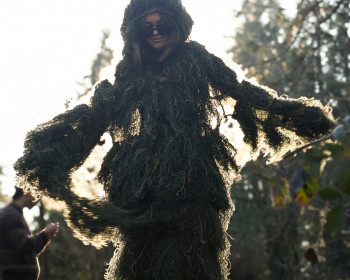An Interdisciplinary Look at the Russia-Ukraine Crisis
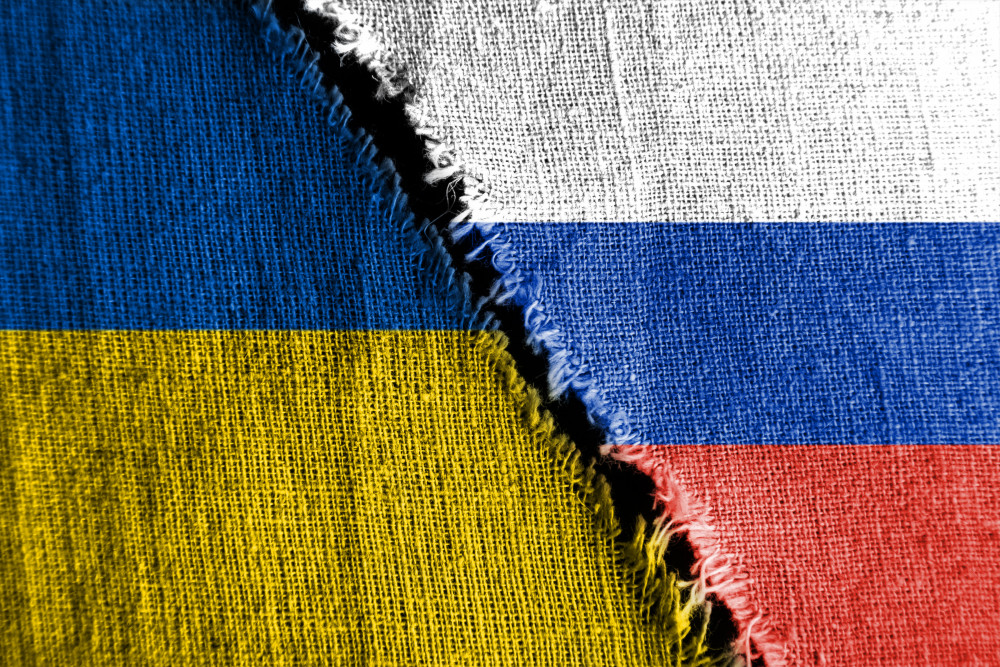
By Hanna Merzbach BA ’20
As the Russia-Ukraine crisis quickly escalates and casualties mount, faculty from four Lewis & Clark academic departments convened a panel discussion offering historical context, as well as a look at the Russian experience and what may be motivating President Vladimir Putin.
About 300 L&C community members turned out for the virtual event on March 2. Panelists included Associate Professor of History Maureen Healy, Associate Professor of Political Science Leah Gilbert, Associate Professor of International Affairs Kyle Lascurettes, and Assistant Professor of Russian Maria Hristova.
Even for these experts, the February 24 invasion came as a shock.
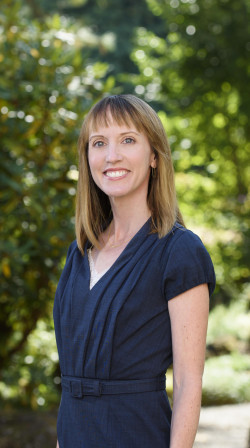
Historical Context of Putin’s Rhetoric
For Healy, the history professor, analyzing Putin’s recent speeches is one way to start to understand his motivations.
Putin has frequently claimed that Ukraine has always been Russian. But Healy pointed to the fact that part of present-day Ukraine was long a part of the Kingdom of Poland-Lithuania until the Prussians, Austrians, and Russians partitioned the land at the end of the 18th century.
After taking over parts of Ukraine, Russians almost immediately came up against nationalist movements. Much like Putin, the Russian czars denied Ukraine even existed and cracked down on the use of local languages and other evidence of nationalist sentiments.
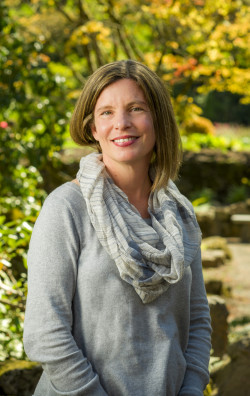
Putin also claims that modern Ukraine was entirely created by Russia—specifically, the Bolsheviks in Communist Russia. And, according to Healy, this is partially true when it comes to borders.
When the Soviet Union was established in the early 1920s, the Bolsheviks tried to set themselves apart from Russian nationalism and European imperialism by giving small minority nationalities some degree of freedom. They allowed people in regions, like Ukraine, to speak their native languages and were quite generous in giving them land, Healy said.
In short, these Soviet actions allowed Ukrainian nationalism to gain more steam—explaining some of the conflict we see today.
Russia and Ukraine’s Post-Soviet Relationship
Looking at the relationship between Russia and Ukraine since the Cold War provides additional context about the current war, according to Gilbert, the political science professor.
The territorial division between Russia and Ukraine in 1991 was peaceful, but it gave rise to many big questions about how closely aligned the two countries should be and on what terms.
Russian leaders have insisted on close cooperation between the two countries and have continuously tried to exert their influence. While even pro-Russian national leaders in Ukraine have continued to assert Ukraine’s independence, tensions grew within Ukraine about whether it should be more oriented toward the West or Russia.
This was evident in the 2004 Orange Revolution, where protestors took to the streets in Ukraine, claiming the pro-Russian presidential candidate’s electoral victory was fraudulent. Ultimately, new elections were held and the pro-Western candidate prevailed—a huge foreign policy loss for Putin.
“Authorities in Russia viewed the electoral victory of the pro-Western candidate as a loss of influence in Ukraine to the West,” Gilbert explained.
In 2014, tensions came to a head again when protestors in Ukraine pushed out a pro-Russian leader; Russia annexed Crimea; and a war between Russian-backed separatists and Ukrainian government forces began in eastern Ukraine. Since 2014, support for a closer alignment with the West has only grown in Ukraine, a trend that was further enhanced by the election of President Volodymyr Zelenskyy in 2019.
“It’s unclear if authorities in Russia—and, in particular, Putin—believe or understand the changes that have taken place in Ukraine,” said Gilbert, noting that Putin has become increasingly isolated with a few hawkish advisors who hold strong anti-Western views.
“Putin has shown his rejection of Ukraine sovereignty,” Gilbert continued. “Now, he’s showing his willingness to launch a wide-scale war, fundamentally challenging the post-Cold War security architecture in Europe. It’s unclear how all of this will end, but what is clear is the devastating consequences that this war is already having for Ukraine, Russia, and the world.”
Tensions Over NATO Expansion
In addition to the increased nationalistic and pro-Western attitudes in Ukraine, the expansion of NATO after the Cold War has added fuel to the fire, according to Lascurettes, the international affairs professor.
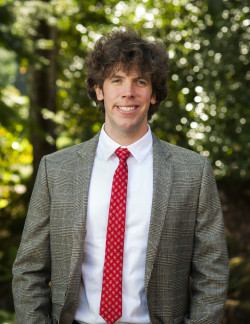
Even though NATO was a Cold War entity, it has continued to endure—and expand—after the fall of the Berlin Wall. The organization has slowly encroached into Eastern Europe, admitting former Soviet countries, which Putin sees as a major threat.
In 2008, NATO announced it would, at some point, admit Georgia and Ukraine. Although little formal progress has happened on that front, “Pandora’s box was opened,” Lascurettes explained. From the Russian perspective, this expansion was “needlessly provocative” and a huge betrayal from the West (which may or may not have privately promised Soviet leaders in 1990 that NATO would forego future expansion eastward). However, NATO members believed that former Soviet countries still needed security against the potential future threat of post-Soviet Russia.
In Lascurettes’ words, “NATO expansion is a real source of tension between Russia and the West.”
The Russian Experience
With fierce censorship in Russia, it’s difficult to discern what Russians, themselves, are going through. But Maria Hristova, a Bulgaria native who heads the Russian section, offered a glimpse inside.
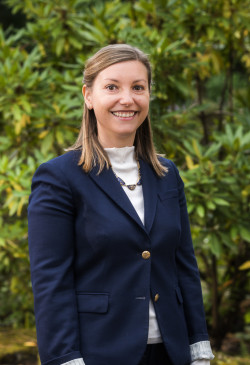
“Effectively, there is an information blackout,” she explained.
A series of new laws passed recently makes it extremely difficult to protest or go against the government. This leaves people feeling helpless and apathetic, though some people are protesting and facing the threat of police brutality.
“People do go out and are willing to be detained,” Hristova said. “This is, for me, the only ray of light in this nightmarish situation.”
Hristova also highlighted that many of the soldiers making up Russia’s forces are largely young and untrained.
“If there is one takeaway from this panel, I hope that it’s a little bit of sympathy for those Russians who are forced into an untenable position by their leaders,” Hristova said. “Invasion is, to me, the ultimate betrayal of the people’s trust, and, as usual, it’s not going to be Putin or his cronies paying the price—it’s going to be the working and lower middle classes who are already struggling as it is.”
More Newsroom Stories
Public Relations is located in McAfee on the Undergraduate Campus.
MSC: 19
email public@lclark.edu
voice 503-768-7970
Public Relations
Lewis & Clark
615 S. Palatine Hill Road MSC 19
Portland OR 97219

